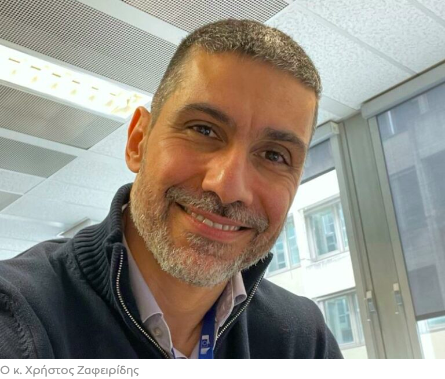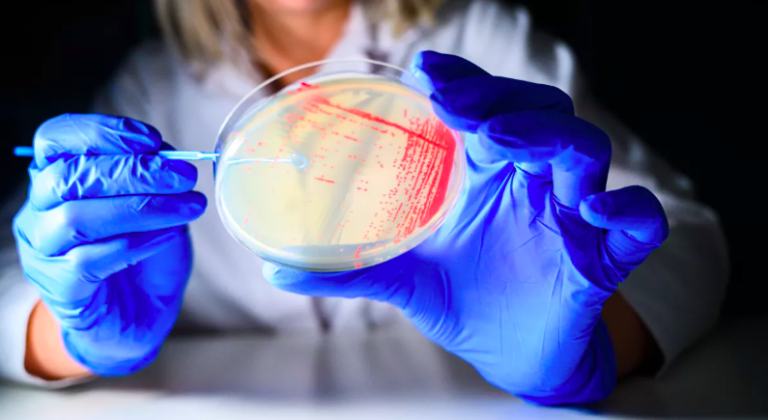“One Health” is a holistic approach that recognizes the interdependence of human, animal, and environmental health. The planet functions as a unified system where changes in one area impact the others. This approach is crucial for tackling challenges such as zoonotic diseases (illnesses transmitted between animals and humans), infections, antimicrobial resistance (AMR), and climate change, all of which exacerbate the spread of new or re-emerging diseases.
Christos Zafeiridis
The Importance of One Health for Ecosystem Sustainability and Public Health
Modern society faces complex challenges threatening both ecosystem sustainability and public health. Zoonotic diseases, transmitted from animals to humans, account for approximately 60% of new infectious diseases, and climate change further accelerates their spread. Additionally, antimicrobial resistance (AMR), driven by the overuse of antibiotics in humans and animals, leads to resistant bacteria, making infections harder to treat. Addressing AMR requires global collaboration and implementation of the One Health approach.

One Health in Greece and Europe
On a European level, collaboration across various scientific and social sectors is essential. The European Union has taken steps to combat AMR by improving monitoring systems and promoting the responsible use of antimicrobials. Nonetheless, gaps remain in the veterinary sector, as efforts to reduce antimicrobial consumption in animals are still insufficient.
Greece, as an EU member, is in the initial stages of collecting data on AMR in animals. Establishing a national monitoring system will help improve understanding and management of the situation to protect public health.
The Need for a Pan-European Antimicrobial Resistance Monitoring Network in Veterinary Medicine
Establishing a pan-European AMR monitoring network in veterinary medicine is a necessary step. This network should monitor AMR in selected bacterial pathogens in animals, provide policy recommendations, and assess the effectiveness of interventions.
Equally important is promoting prudent antimicrobial use and evaluating AMR transmission risks from animals to humans. This network should not only operate on a European scale but also be adapted to national systems, such as Greece’s. A national monitoring system will allow Greece to categorize food-producing animals, conduct sampling, and identify bacterial species for study. Recording such data is essential for ensuring animal and human health.
Benefits and Challenges of Implementing the System in Greece
Implementing a national monitoring system in Greece will offer significant advantages. Firstly, it will help reduce antimicrobial use in animals and improve public health. Secondly, it will enable authorities to take targeted measures to mitigate risks from resistant pathogens. Finally, it will help Greece meet EU requirements and actively participate in European initiatives to address AMR.
However, challenges also exist. A lack of sufficient data, difficulties aligning with European standards, and infrastructure limitations are some issues that need to be addressed. Creating a comprehensive monitoring system requires financial resources, expertise, and collaboration across various sectors.
Measures to Ensure One Health
To secure One Health, specific measures are needed at both national and global levels. Firstly, interdisciplinary cooperation between doctors, veterinarians, environmental scientists, and other specialists must be strengthened. Governments should invest in national monitoring systems and promote health professionals’ training in responsible antimicrobial use.
Public awareness is also vital. Citizens must understand that their health is intrinsically linked to animal and environmental health. Proper medication use, environmental protection, and sustainable livestock farming are some steps that will contribute to securing One Health.
One Health is not merely a theoretical concept but a necessity for protecting human, animal, and environmental health. Greece, Europe, and the rest of the world must collaborate to confront challenges such as AMR and zoonotic diseases. Establishing a monitoring network and implementing One Health principles will contribute to a safer and more sustainable future.
Christos Zafeiridis is a National Expert at the European Commission’s Directorate-General for Health and Food Safety, Crisis Management in Food, Animals, and Plants Directorate – Official Controls Division, EU Representative – Northern Ireland Liaison Group (UK), and Official Veterinarian at the Greek Ministry of Rural Development & Food (Directorate General of Veterinary Services).
MSD Greece supports the “Proto Thema” initiative to highlight the importance of One Health for ecosystem sustainability and public health protection. The pharmaceutical company has no involvement in the selection of contributors or content of the articles.
Ask me anything
Explore related questions





